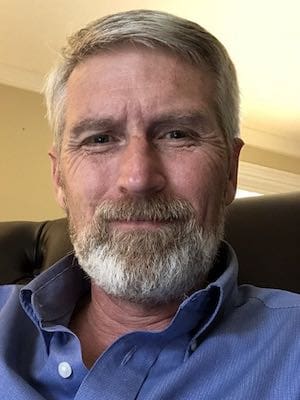Alex Haley’s miniseries “Roots” in 1977 was my first understanding of family systems on a macro level.
I certainly would not have used the term “family systems” in the ninth grade, but I knew that “Roots” was about my family system as much as it was about the roots of my African-American classmates.
“Roots” helped me to understand the genesis that separated whites and blacks in the Deep South in a way that our history books never had.
It opened up the pain and the emotions of the slaves and allowed me to empathize with their plight in ways I’d never done.
While there was a subplot in “Roots” that showed whites with abolitionist views, they were mostly Northerners.
It caused me to wonder, “If I’d been born in a different era, would I have been a racist? In a different day, would I have fought for the Confederacy and defended the South’s rights to own slaves, believing that was the Bible’s teaching on the subject?”
As a ninth-grader, I attended a public school in rural south Alabama, population of about 600 people, and yet we had a private school created just after integration, which drew students from most parts of our county.
While I had black friends, our friendships stopped at the school door and sports facilities. We didn’t socialize outside school. We didn’t even attend prom together.
I vaguely remember George C. Wallace coming to our town campaigning when I was a boy. My grandfather said I used to imitate him – scary thought.
Wallace was born in Clio, just six miles from my hometown in one direction, and he had purchased a home in Clayton, just seven miles in the other direction.
He was revered among whites while Martin Luther King Jr. was not. Yet, I did not realize the impact that either of these men had on our state, country or race relations until I moved from home.
My town was not a place where people flew rebel flags from porches. Most people were kind and loving church-going people. Racism was not done overtly.
For example, when it was time to sell a house in the neighborhood, whites never put a “For Sale” sign in the yard so as not to attract potential black buyers. Instead, word spread by mouth until a white buyer came forward.
The public schools never received any tax revenue increases, contributing to their decline. However, this eventually led to white flight to surrounding counties. Young white families eventually moved from the small towns.
Eventually, even the private school closed as the county suffered from a lack of young white families.
Alex Haley’s “Roots” exposed the deep-seated hatred and shameful views of my ancestors toward slaves. Of course, this is just one man’s story. However, no matter how you might dress up slavery, it would still be slavery.
Haley’s story left me wondering how anyone could read how Pharaoh enslaved the Hebrews or how the Babylonians and Assyrians exiled Jews from Jerusalem in their lands and not think that enslaving people was evil.
Many years ago, I stopped by my former basketball coach’s home to congratulate him on winning the state championship. In his living room, I noticed a picture of Martin Luther King Jr.
I’d never been in a home where his picture was on display, perhaps because I’ve not been in many African-American homes.
It occurred to me that if you are not allowed to go to the same schools, bathrooms and restaurants as whites, or you don’t have the right to vote, and are treated less than equal in other ways, those who sacrificed their lives to change that are your heroes.
My ancestors, from white slave owners to those who fostered a culture of Jim Crow laws, did not have to overcome those injustices.
Rather, they had to overcome attitudes of supremacy, entitlement, hypocrisy, hatred and racism. I am a part of that family system.
As I watched the remake of Alex Haley’s “Roots” recently, I was reminded that these are my roots and that part of my journey is to try to recognize the parts of the family system that still exist around me and within me.
By the time George C. Wallace’s life ended, he was in a different place on this issue than when he was blocking African-Americans from entering the University of Alabama.
Perhaps in his own physical suffering, he identified with the suffering of others, specifically with African-Americans, many who forgave him and voted for him as governor.
People change. Family systems change. I can change. You can change.
In order for that to happen, we need to understand our roots because it is possible to set down some new ones.
 Michael Helms is pastor of the First Baptist Church in Jefferson, Georgia. His writings can also be found on his blog, Finding Our Way.
Michael Helms is pastor of the First Baptist Church in Jefferson, Georgia. His writings can also be found on his blog, Finding Our Way.

